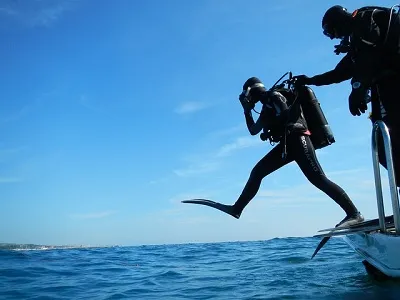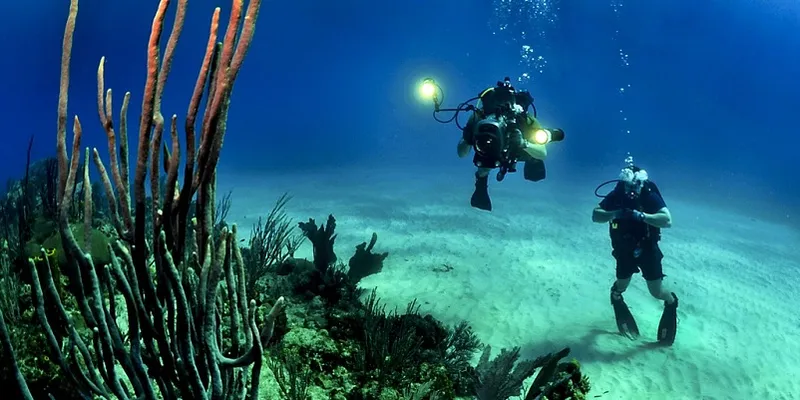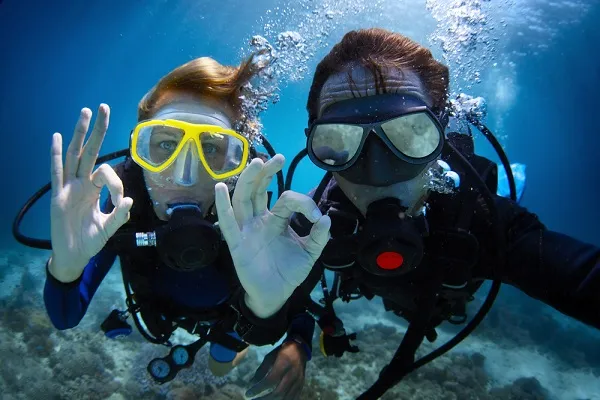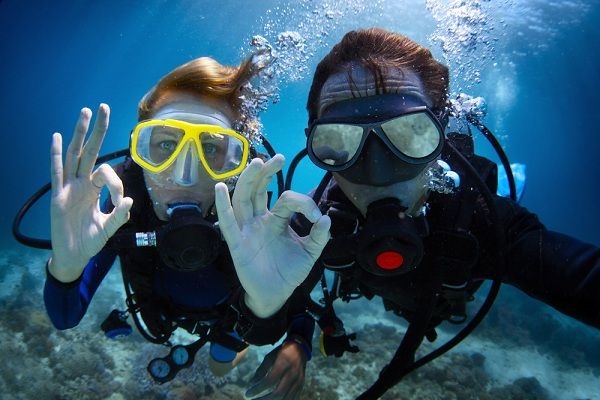Scuba Sutras: startup lessons from under the sea
What can an entrepreneur learn from the under the sea? Apparently a lot.

Guhesh Ramanathan is a Bengaluru-based entrepreneur, mentor, investor, and founder of startup incubator and capital advisory firm Excubator. He also has 20 years of diving experience and his personal experiences in diving have led him to frame what he calls ‘Scuba Sutras’ – nine lessons for entrepreneurs. At the recently held ‘The Goa Project’ he shared the wisdom:
- Never dive without BWRAF check
It refers to checking BCD (Buoyancy Compensator and its Deflation), checking if Weights belt is tied correctly, ensuring that the regulator (for breathing) is functioning properly and that you know how they work, as well as ensuring that air intake and exhale is easily possible and that the air tank is full. Then comes the final check on all consoles, mask, snorkel, fins etc.
But if you jump in without checking at least one of them, you will be in trouble.

“Once I dived in behind a lady twice my weight – which meant her weights were more than mine. In my excitement, I grabbed her weights and dived in… and went all the way down to the bottom, and fell on sea urchins! I still have marks from that mishap,” Guhesh recollects.
Entrepreneurs often jump in without thinking how deep they are going, he says.
In the startup world, BWRAF stands for Business need, Working capital, Resources, Action plan, and Founder team. Guhesh says that investors also miss BWARF sometimes.
2. Maintain neutral buoyancy.
Divers get limited amount of air in the tank. They have to learn how to conserve it for a longer period of time, as they would want to spend more time under water. But, often, the diver gets so excited when he gets down that he might be busy taking photographs and getting distracted, wasting all the air. And before you know it, it’s time for you to get out of the water.
Startups should also learn to conserve its resources. “Better sustain the business. If pivoting is the best thing to do, go ahead with that before you run out of your resources and your goodwill,” Guhesh urges. In other words, find your neutral buoyancy quickly and stick with it to extend your resources.
3. Enjoy the dive, not just the fish.
Sometimes, the visibility is bad under water. You just worry about getting out safely, and lose out on the fun of diving. Also, most people dive only to see the fish. But even if the visibility is poor and you don’t know if you can get out, and not even anyone around, just enjoy it. Your team will safely get you back.

Likewise, Guhesh advises that entrepreneurs should also enjoy what they are doing. “Sometimes you see amazing fish even in the lousiest dive. In starting up, enjoy the journey – you might get better surprises than expected,” he says.
4. Be a good buddy – never dive alone.
A buddy in time of trouble can give you the regulator to breathe if yours stops working. Guhesh recounts an experience, “Once I was diving in Tunisia, in freezing cold water. The equipment was not of great quality. My teeth were chattering and I bit the pipe by mistake. I had only one regulator in the place of the usual two. So, once I ran out of oxygen, I had to borrow and share the regulator from my buddy – breathe, return it, repeat.”
In entrepreneurship, too, always find the best co-founder and team. They help you survive the worst moments.
5. Do not confuse certificates with expertise.
Master trainees may not be as good as navy seal divers. Even if the latter do not have certificates, they are mostly phenomenal. Hiring for certificates and not experience is stupid in starting up too.
Guhesh recounts, “In Thailand, I was doing certification for advanced open water diving. You have to remove your mask and let the water flood you. A guy breathes the water in! He was from the British navy. He didn’t have any certificate. Real expertise has nothing to do with certificate.”

“The triggerfish are tiny and have very small territories; god help you if you get into them. You are more in danger from them than sharks when you dive,” Guhesh says. He explains that if you are starting up to compete against Flipkart or Google, well, the titans don’t care about your existence. It is a guy next door who is a bigger threat to you. In short, scale of your enemy matters.
7. Remember the 50bar limit.
Return from the dive when you have 50 bar (from the 200 bar) left in your air tank. This is for any emergencies while surfacing. Similarly, while starting up too, define your limits. Guhesh elaborates, “Borrowing from others to go strong is scary. So defining exit criteria before entering entrepreneurship is better avoided.”
8. Remember that there are other oceans to dive.
So what if your first dive doesn’t work out well? May be the equipment was of cheap quality, or visibility was poor, or the ocean was not at its best for you. Guhesh reminds you to not give up, with an example.
“My friend Saumil was running a company in 1999, raised $5 million. They provided tech support across the internet. But the money got burnt out fast and he ended up taking a job in the US. But nine months later, he came back to India and started up a company to teach sports to kids – which became the legendary Edusports. According to Saumil, no job can give him the thrill of entrepreneurship. And no failure can stop him from starting up again.”
9. Pass on your enthusiasm to a non-diver.
Inspire others to start up too! “Because misery loves company,” he grins.











